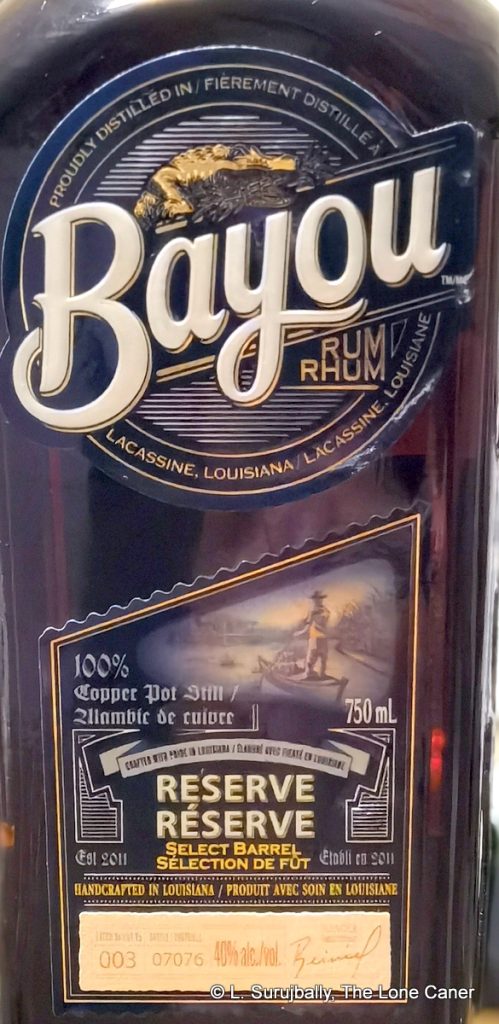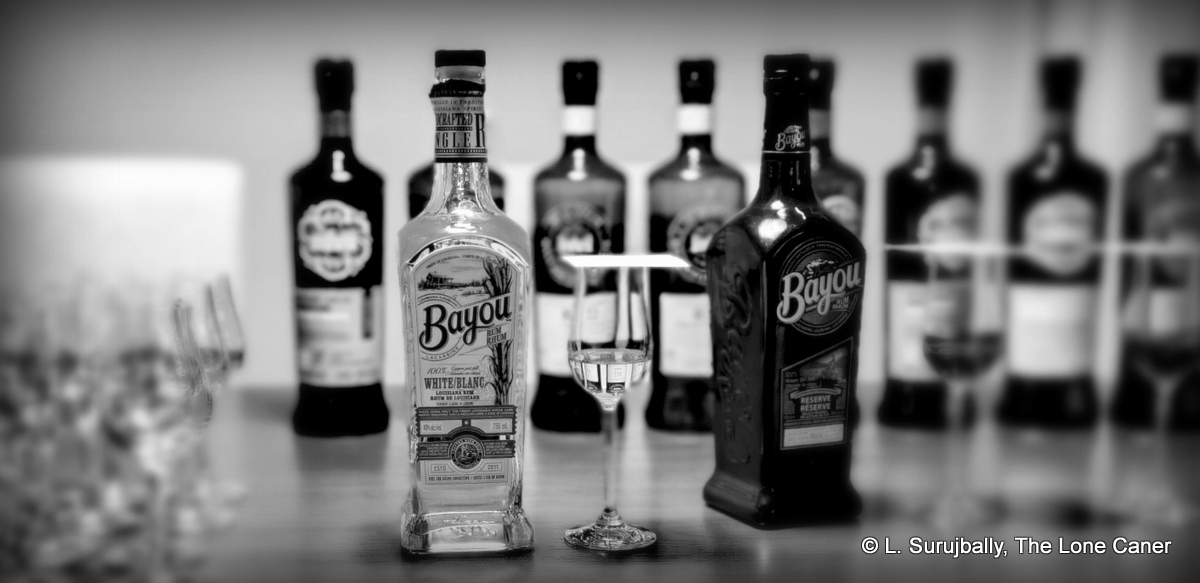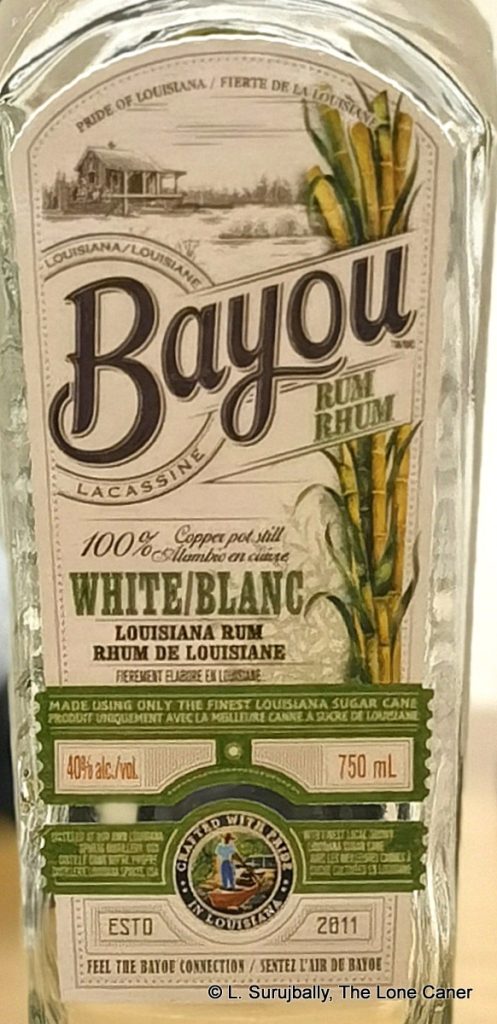Rums like this, decent as they may be, always strike me as ultimately deceptive: when you delve right in and start to take apart the claims of the advertising they try to sell you on, all you get is emptiness. The pretty label and website blurbs you are generously provided is rather at odds with the grudging paucity of anything resembling actual information, and for us to be running around trying to understand anything about what’s in the rum in this day and age is, quite simply, an affront to rum lovers.
The mild dissatisfaction you might sense in the comment above derives from a tasting of the Bayou white, the XO “Reserve” and the “Mardi Gras” rums that I did side by side back in January of 2024. I wasn’t impressed by the white and this one didn’t do much for me either. Now, just so you know – I taste first and research later, so whatever issues I have with disclosure and labelling and the company’s information provision don’t impact how I feel about the rum as it samples, or how I score. So let’s just get that out of the way and then I’ll tell you some more about what you’re supposedly drinking
The nose opens with what initially seems an impressive panoply of aromas: caramel, cold wet coffee grounds still in the filter, some toffee, smoke and leather. This is all boilerplate, however, really quiet and light. After some time one can pick out vanilla, sweet green peas in water, and some faint background notes of stewed apples, flambeed bananas, that burnt fruit kind of thing. If you strain you can get some pastries and stale black tea. Quite sweet, with some licorice and marshmallow notes thrown in at the back end.
 If this had been about five to ten points stronger it would have made a real statement for itself, I believe, but the standard strength undercuts the promises the nose makes. Tasting the rather thinly sweet bourbon-like rum provides a whole lot of nothing in particular: I strain to taste chocolates, cinnamon, unsweetened black tea long since gone cold, licorice, some vanilla and it’s all rather dampened down, with some indeterminate fruits like apples doing a slow dance in the background. Very little to get enthused about here, very little to get inspired by — at the end, it closes with a lackadaisical indeterminate finish of marshmallows and light fruits one can barely sense before they vanish, and one is left wondering what the point ever was.
If this had been about five to ten points stronger it would have made a real statement for itself, I believe, but the standard strength undercuts the promises the nose makes. Tasting the rather thinly sweet bourbon-like rum provides a whole lot of nothing in particular: I strain to taste chocolates, cinnamon, unsweetened black tea long since gone cold, licorice, some vanilla and it’s all rather dampened down, with some indeterminate fruits like apples doing a slow dance in the background. Very little to get enthused about here, very little to get inspired by — at the end, it closes with a lackadaisical indeterminate finish of marshmallows and light fruits one can barely sense before they vanish, and one is left wondering what the point ever was.
So…what is it? According to the website it’s a molasses-based pot still rum, aged for four years or less (the famous words “up to…” are in evidence) in wet ex-bourbon barrels, which implies they couldn’t be bothered to actually try for an actual bourbon but wanted to get the best of both drinking classes enthused with this one drink made on the cheap. The bottle label says it’s a reserve without defining what that is, and the website does nothing better, though it does make a curious comment that suggests that are using a solera system, even if this is mentioned nowhere else on the website or the label itself. On the other hand, we are told this is bottle #003 of 7076, which rather undercuts the special select nature of the release, I would think, but never mind.
“This is a rum for bourbon drinkers” chirps the website — one can only wonder when one reads stuff like that, to what level of bourbon they refer: bottom feeding bathtub-brewed hooch, or something more elevated that’s fallen on hard times, or…what? Me, I’m completely unmoved by it, because it suffers from that most depressing of characteristics, namely, that it has none. It’s a rum, yes, but bland and completely conventional, without anything to set it apart, a slog through, and not really interesting — I could get more of a buzz shuffling the papers on my desk from the “in” to the “out” tray.
(#1093)(74/100) ⭐⭐½
Brief company bio (from Review #1053 of the Bayou white )
The company making the rum is called Louisiana Spirits LLC: it was founded in January 2013 by brothers Tim and Trey Litel and their friend Skip Cortes, with Bayou as their flagship brand in January 2013 (the idea had been floated in a duck blind back in 2011). The chosen name was obvious (and survey-tested for its recognition factor, as if this were necessary), and back then the design had a ‘gator on it. By 2018 in a rebranding exercise it had been renamed “White” and the modern design had snapped into focus. The wag in me suggests that maybe more surveys were done but actually that’s when the SPI Group (the owners of Stoli vodka and headquartered in Luxembourg) who had already bought a majority stake in 2016, acquired all the remaining shares and took over. As far as I know, the original founders are no longer much involved in production.
Other notes


